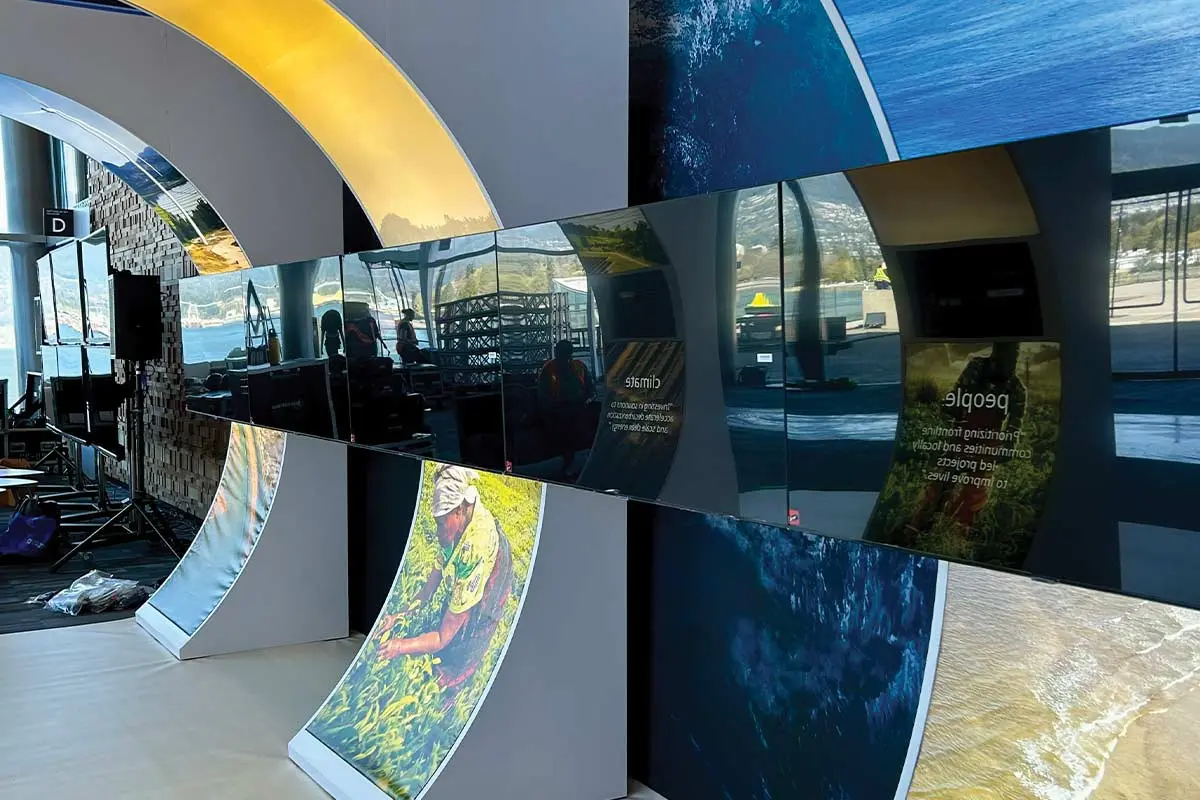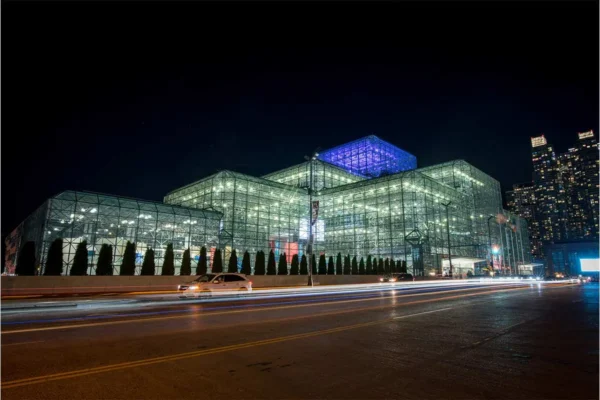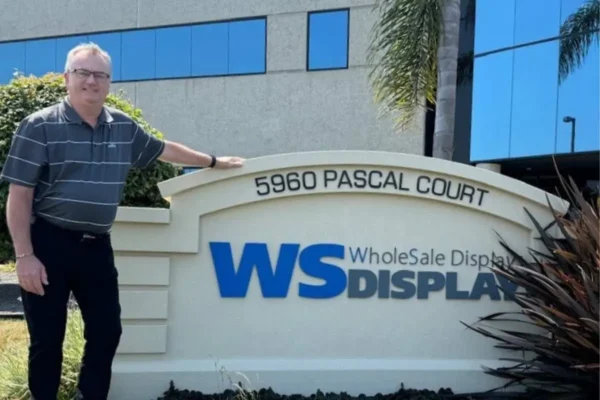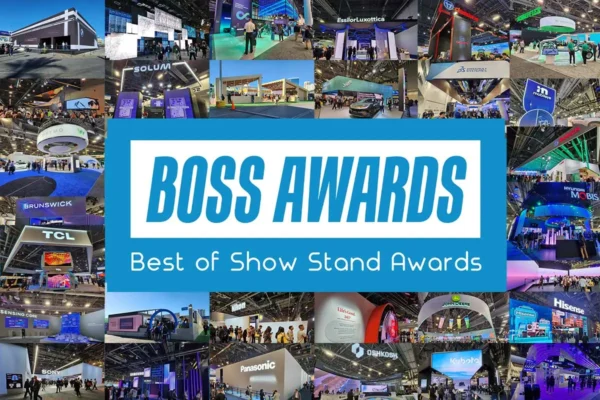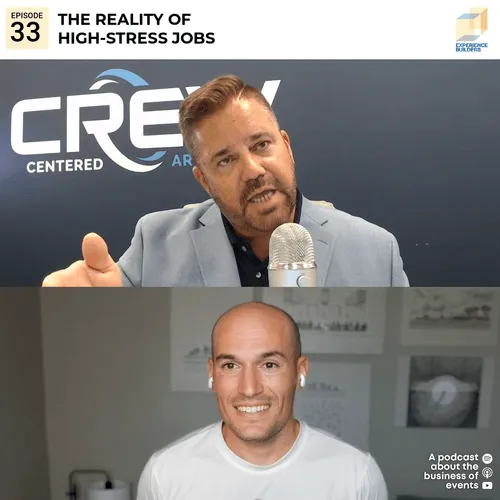by Chris Kappes, Exhibit City News
Brand environments leader, Moss, is a pioneer in spotting experiential trends before they become mainstream. Serving approximately 75 percent of the nation’s exhibit, retail, and experiential firms, Moss collaborates with creative designers to transform concepts into three-dimensional realities. This foresight requires extensive research and development before new concepts debut on the floor. Jason Popp, CEO of Moss, shares his insights on trends and innovations in the tradeshow, retail, and permanent installation sectors.
ECN: What common challenges do the various experiential channels you serve face?
Jason Popp: The core challenge across experiential channels is effectively conveying the brand message in a physical environment. This is a universal issue, whether in a tradeshow booth for three days, a retail campaign lasting three months, or a corporate interior designed for over three years. Brand consistency is particularly challenging. Companies often present their brands through diverse materials within a single booth. Ensuring consistency across fabric walls, three-dimensional letters, rigid boards, and AV screens is tough. This challenge is one reason why more clients turn to us for varied production methods, notably dimensional letters, which have seen increased demand. Budget constraints are another major issue. Post-pandemic inflation has driven up costs, so we must always be budget-conscious while serving our diverse channels.
ECN: How does Moss stay at the forefront of trends in the tradeshow, retail, and permanent installation sectors?
Jason Popp: We immerse ourselves in the environments we serve. Our team regularly walks tradeshow floors and visits retail outlets, both our clients’ and others. We stay active in industry associations like EDPA and SEGD and exhibit at shows like Neocon, which is fantastic for identifying key design trends in commercial interiors.
ECN: What recent product solutions has Moss pioneered, and what challenges do they address?
Jason Popp: Recently, our focus has shifted from product challenges to process refinements, particularly in response to shorter lead times in the exhibit and events industry. We’ve addressed this by adding shifts, state-of-the-art machinery, digital automation, and bringing capabilities like powder coating in-house, which speeds up project turnaround by 5-6 days.
ECN: How does Moss share trends among its global offices?
Jason Popp: Modern technology plays a crucial role. We integrate acquired companies into our email and Microsoft Teams environment immediately, enabling seamless communication and collaboration across borders. Our global operations team regularly shares insights on equipment behavior and material properties, ensuring ideas and best practices spread quickly within our expanding team.
Lastly, we distribute a monthly global newsletter that gives us a chance to share news on recent projects, feature our people, and announce upcoming company events and internal initiatives.
ECN: How has sustainability changed the way Moss does business?
Jason Popp: Sustainability is integral to how we operate. Our team is deeply aware of our environmental impact, and initiatives like upcycling scrap fabric and implementing composting programs have been embraced wholeheartedly. Our new Sustaina Line of products, offered at no additional cost, makes it easier for clients to choose sustainable options without compromising on quality or price.
ECN: How does your customer base feel about Moss marketing full exhibit solutions?
Jason Popp: Our customers, which include exhibit houses, agencies, design and build firms, and general service contractors, appreciate that we focus solely on serving the channel, not working directly with exhibitors. This dedication to the channel enables us to collaborate effectively on diverse and challenging projects without competing with our clients.
ECN: What are the advantages and disadvantages of being a private equity-owned business?
Jason Popp: Being private equity-owned for over two decades has been beneficial. Despite the occasional negative portrayal of private equity in the media, our owners are knowledgeable and supportive, especially during the pandemic. They understand our industry and allow us to manage the business autonomously, which is crucial given the fast-paced nature of our sector.
ECN: Can you describe the process of working with creative designers to bring a concept to life?
Jason Popp: It’s a highly collaborative process. Our clients provide creative vision, and we offer guidance on the best build approaches. We iterate on designs, considering constraints like portability, rigging requirements, and electrical provision, to ensure the final product meets all practical needs.
ECN: What future trends do you foresee in the tradeshow and experiential marketing industry?
Jason Popp: Clients will continue seeking ways to stand out on crowded tradeshow floors, driving innovation in lighting and complex shapes, areas where Moss excels. Additionally, sustainability will become increasingly important as more companies track their carbon emissions, extending this accountability to their tradeshow activities.
ECN: Are there any plans for Moss to expand into new markets or industries?
Jason Popp: We’re always exploring opportunities to enhance our offerings. A recent example is the acquisition of what is now Moss UK. The integration has been seamless due to our shared culture and approach, demonstrating our ability to grow while maintaining our core values.
ECN: What sets Moss apart from other companies in the same industry?
Jason Popp: Our diverse capabilities under one roof allow us to explore multiple approaches to a project. We combine light wood fabrication, lighting, and fabric to create standout designs. Our culture of continuous improvement and digital transformation ensures we are always optimizing our processes and understanding the materials we work with.
ECN: How has the rise of digital transformation affected Moss’s business model and operations?
Jason Popp: Digital tools enhance our processes significantly. Our customer collaboration tool, for example, streamlines digital collaboration on artwork and frame drawings, reducing miscommunication. It provides clients with instant notifications and access to all project documents, making the entire process more efficient and client friendly.
This story originally appeared in the Q3 2024 issue of Exhibit City News, p. 46. For original layout, visit https://issuu.com/exhibitcitynews/docs/ecn_q3_2024/46.






